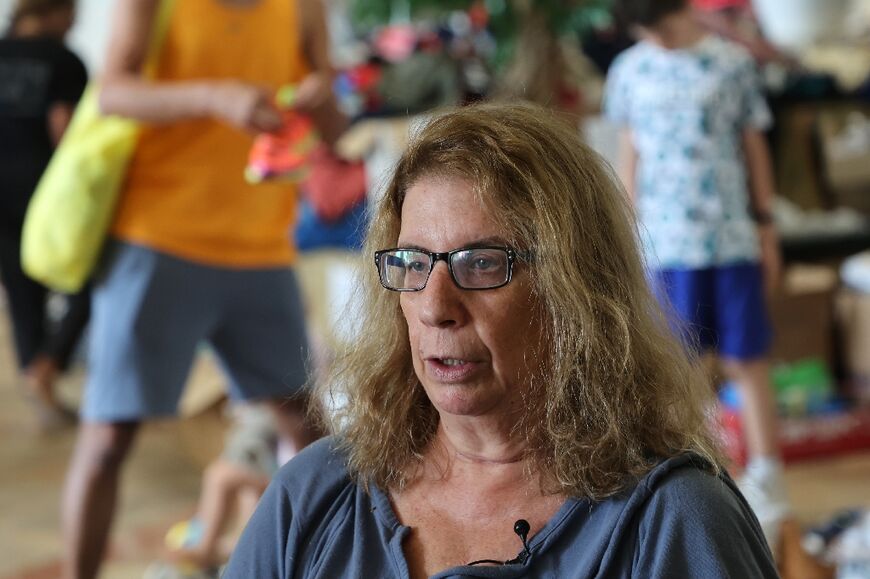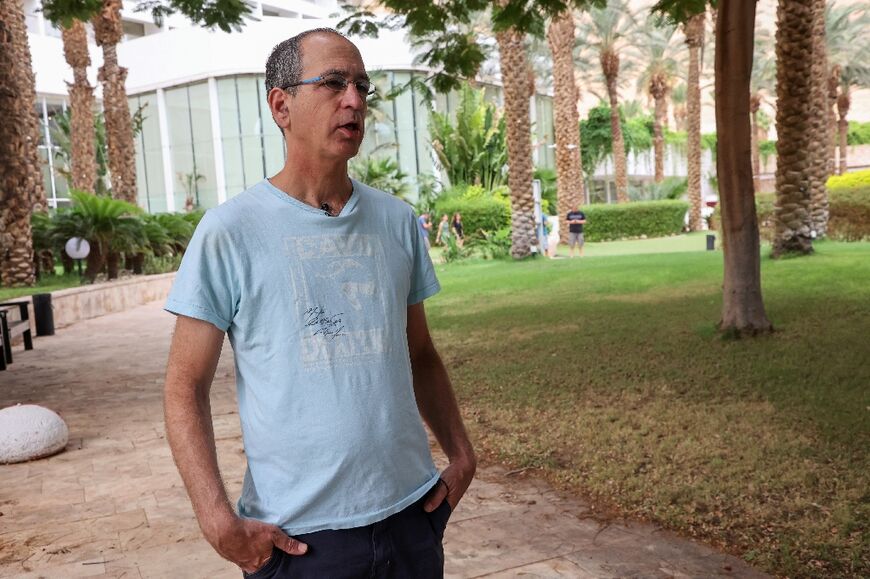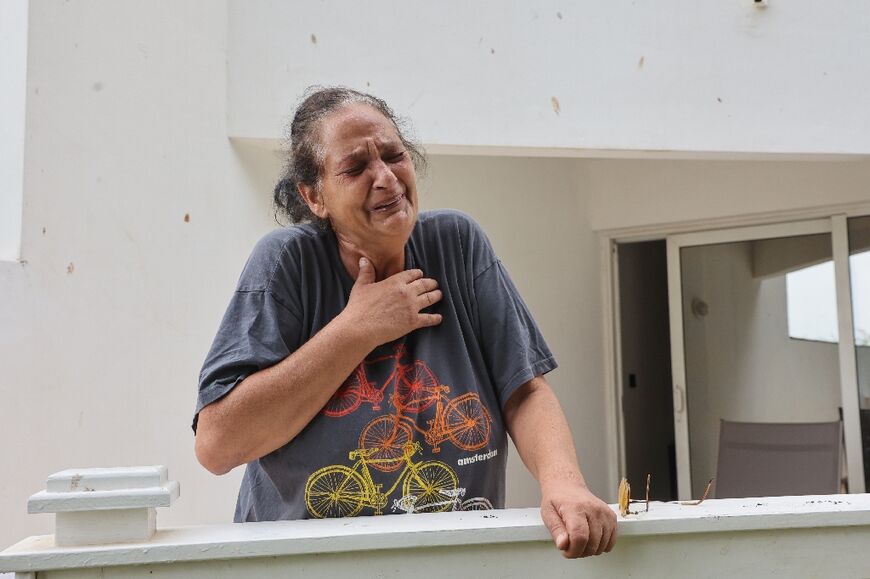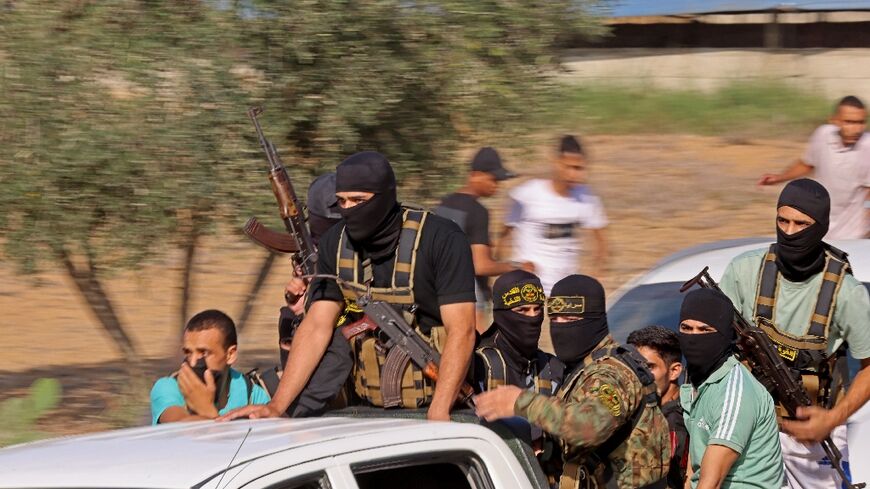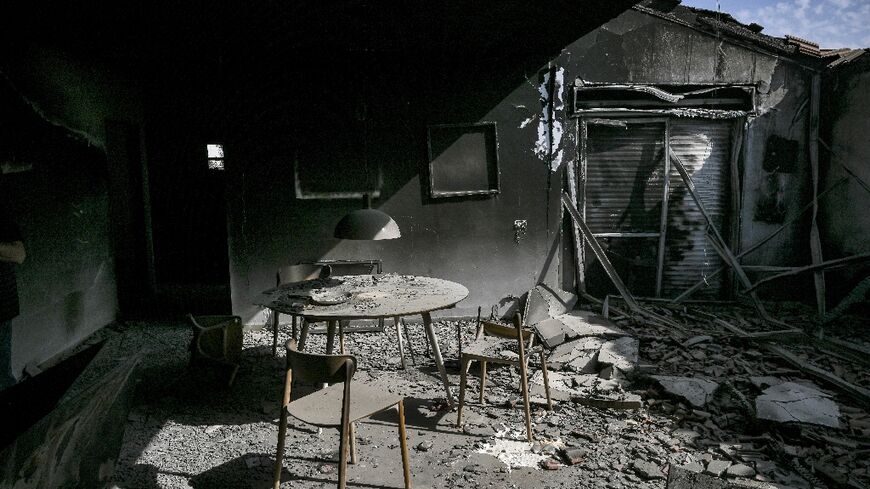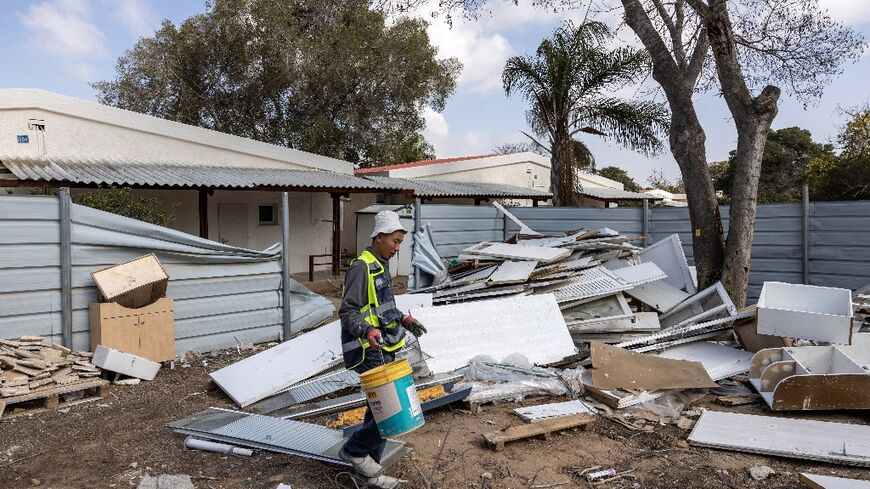Away from home, Israeli Gaza border community reels after bloody attack
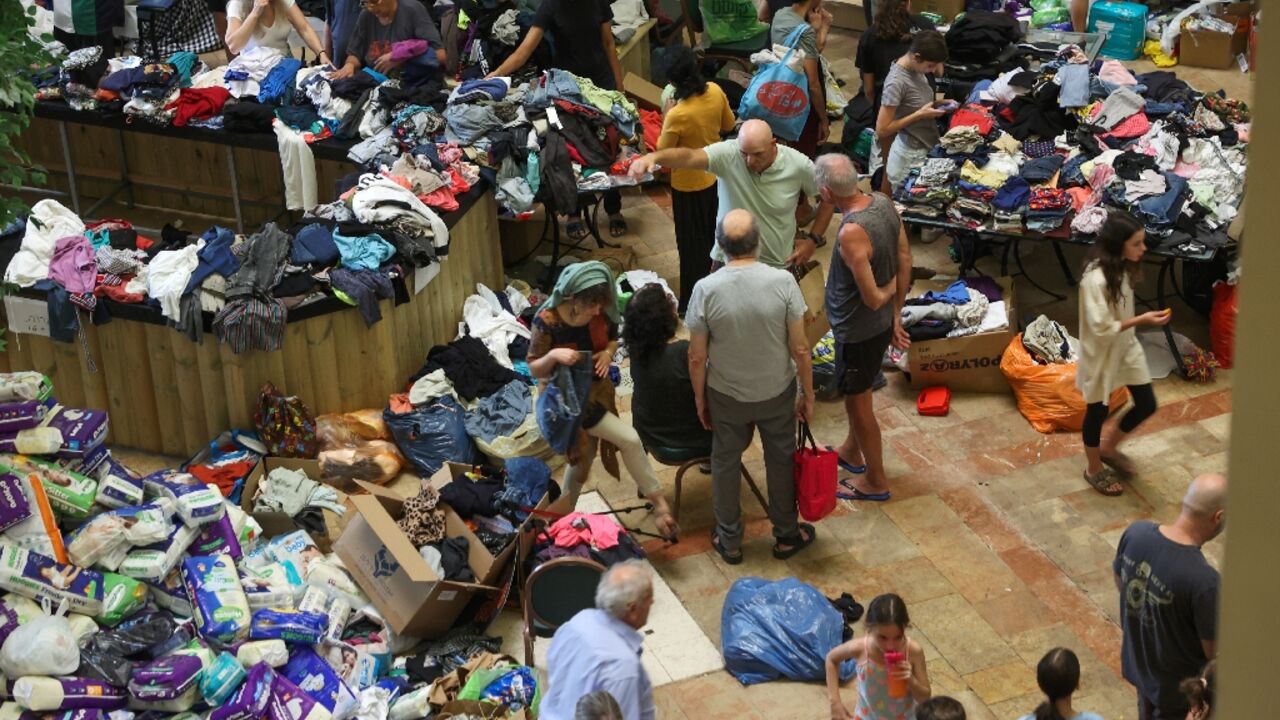
Inbal Reich Alon has fled to safety after 15 hours locked down in a shelter as Hamas militants stormed her Gaza border community, killing and kidnapping dozens of Israelis.
"We don't know whether we have somewhere to go back to," she told AFP on Monday at a Dead Sea hotel where she is now staying along with about 150 residents of Beeri, a kibbutz in Israel's south.
Reich Alon, 58, said she heard explosions as Beeri was targeted when Palestinian militants launched a multi-pronged offensive on Saturday, the Jewish Sabbath, killing hundreds of people, many in areas near the border with the blockaded Gaza Strip.
"I thought to myself that I didn't see a weather forecast saying it was going to rain. We thought it was thunder," she recalled.
But within moments, she had realised that her small, tight-knit community had come under attack.
As the family sheltered in a secure room -- meant to keep residents safe during rocket barrages -- their house was torched and burned down around them.
"We had no idea what was happening" but could hear shouts in Arabic, Reich Alon said. For hours on end, her husband and children "didn't let go" of the doorknob, which typically does not lock in such shelters.
Residents AFP interviewed estimated that dozens out of some 1,200 community members were killed or taken hostage in the attack.
"We were lucky, that's all," Reich Alon said at the serene David hotel, sandwiched between the Dead Sea and the imposing Judean hills some 60 kilometres (37 miles) south of Jerusalem, where Beeri residents were temporarily housed.
"We are a big kibbutz," she said, before immediately correcting herself, "or were, at least".
As fighting at home continued, the fate of many others remained unclear.
On Monday morning, army spokesman Daniel Hagari told Israeli media that "about 70 terrorists infiltrated Kibbutz Beeri overnight" and "most of them were killed following exchanges of fire".
- 'Lowest point' -
On the hotel's ground floor, heaps of clothes, toys, food items and hygiene products took up most of the space, all donations collected within hours.
"Israel has an incredible civil society," Reich Alon said. People "brought medicine, clothes, cosmetics... We got here with what we had on us, some of us barefoot."
Survivors who had lost most or all of their belongings in the attack were looking through the items as children were painting and playing nearby.
Volunteer mental health professionals offered support. Outside, a woman in tears was walking her dog.
"We're in the safest place," said historian Alon Pauker, as he looked over the Dead Sea, "the lowest point on Earth -- but also the lowest point for us as a nation."
"This is a 9/11-type tragedy," Pauker, 57, told AFP. "The place I live in will never be the same."
"We have to understand we no longer have the kibbutz we had and we no longer have the country we had. This is a tectonic shift," said Pauker, who works at Beit Berl College in central Israel.
For him, Hamas militants who carried out the bloody assault are to blame, but he says much of the responsibility for the escalation lies with the Israeli leadership and Prime Minister Benjamin Netanyahu who "abandoned the country".
"The defence forces did not defend citizens," he said, charging that the army was "busy doing other things" in the occupied West Bank due to the hard-right government's pro-settlement policies.
"The army, for the first time, proved it doesn't know how to protect civilians."
For years, Israel "dismissed" a potential Hamas threat, Reich Alon said. But the militants that attacked the kibbutz "knew what they were doing. We've encountered a really powerful enemy."
- 'Murdered children' -
Israel's kibbutz movement, which predates the state's establishment in 1948 and has its roots in socialist ideology, is traditionally aligned with the left.
But now, Beeri residents told AFP they were forced to reexamine their ideas about a future peace with the Palestinians. Unthinkable for some just days ago, they found themselves backing a full-fledged war against Gaza to rid it of Hamas.
"We face a terror organisation that... murdered children for the sake of murdering children," Pauker said.
Israel has counted over 700 dead, while 560 people have been killed in retaliatory strikes on Gaza, including children on both sides.
"Extremists (in both Israel and Gaza) feed off of each other, and both don't care about human lives," Pauker added.
For Reich Alon, "we've always strove and still do to live in peace with our neighbours. We don't want these wars."
"This is something I never thought I would say -- after they bring back the 100 hostages held there (in Gaza), I don't care what's left there."


